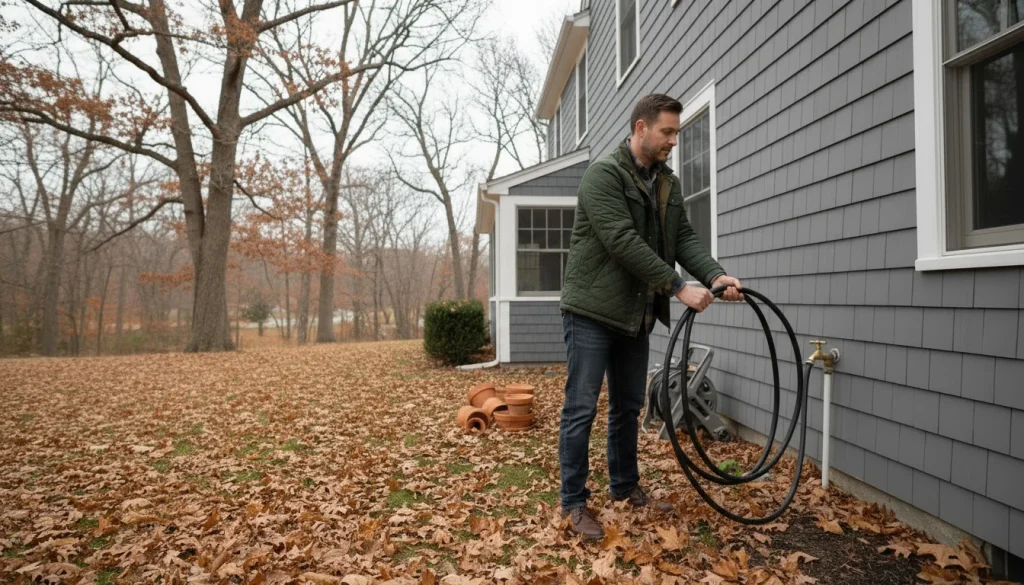As winter settles over the Northshore and Northwest Suburbs, the cozy comforts of home—a warm fire, a hot drink, and the hum of holiday gatherings—take center stage. But as temperatures drop, so does the risk of frozen pipes, a homeowner’s cold-weather nightmare.
Thankfully, with a few preventive steps and help from a trusted plumber in Des Plaines, IL, you can keep your plumbing protected all winter long. Before Thanksgiving arrives, take a little time to winterize your pipes and enjoy peace of mind knowing your home is ready for the season ahead.

1. Drain Outdoor Faucets and Store Hoses
Outdoor spigots and garden hoses are some of the first places freezing weather strikes. When water remains inside these fixtures, it can expand and cause pipes to burst. Start your winter prep by disconnecting all hoses, draining them thoroughly, and storing them in a garage or shed.
Then, shut off the outdoor water supply if your home has a dedicated valve, and open the exterior faucets to let any remaining water drain out. A simple 10-minute task like this can save you from costly water damage later on.
2. Insulate Vulnerable Pipes
Pipes in unheated or drafty areas—such as basements, crawl spaces, garages, and attics—are especially prone to freezing. Insulating these pipes with foam sleeves or fiberglass wrap is a simple yet effective solution. For added protection, focus on pipes located near exterior walls or windows.
You can also use specially designed pipe insulation kits for those hard-to-reach spots. Proper insulation not only helps prevent freezing but can also improve your home’s overall energy efficiency, keeping warm air in and cold air out. If you’re not sure where to begin or need help with this task, reach out to us! We’re happy to help with your plumbing needs.
3. Use Heat Tape in High-Risk Areas
For pipes that face extreme cold or are difficult to insulate, consider applying electric heat tape. This flexible heating cable can be wrapped around pipes and plugged into an outlet, providing gentle, consistent warmth. It’s a particularly smart choice for outdoor or garage plumbing lines that can’t easily be kept warm by your home’s heating system.
4. Let Faucets Drip During Deep Freezes
When temperatures plummet into the teens or single digits, it’s wise to let a small trickle of water flow from faucets connected to your most vulnerable pipes. The steady movement of water relieves pressure and helps prevent the pipe from freezing solid. Focus on faucets located along exterior walls or in colder parts of the house, like bathrooms over unheated garages.
5. Schedule a Professional Seasonal Inspection
One of the best ways to prevent frozen pipes—and other winter plumbing issues—is to schedule a seasonal inspection with our expert team. A professional plumber can spot potential risks before they become problems, ensure your plumbing system is in good condition, and make recommendations to improve efficiency. A quick checkup now can help you save water, lower your bills, and reduce the chance of unexpected winter repairs.
As we gather to celebrate Thanksgiving, we’re especially thankful for our customers across the Northshore and Northwest Suburbs who trust us with their homes and comfort. From our family to yours, we wish you a safe, warm, and worry-free holiday season—and a winter without frozen pipes!
For expert help from a plumber in Des Plaines, IL, contact Reliance Plumbing Sewer & Drainage, Inc. Our knowledgeable plumbers serve the North Shore and Northwest Chicago suburbs. Rely on Reliance!
